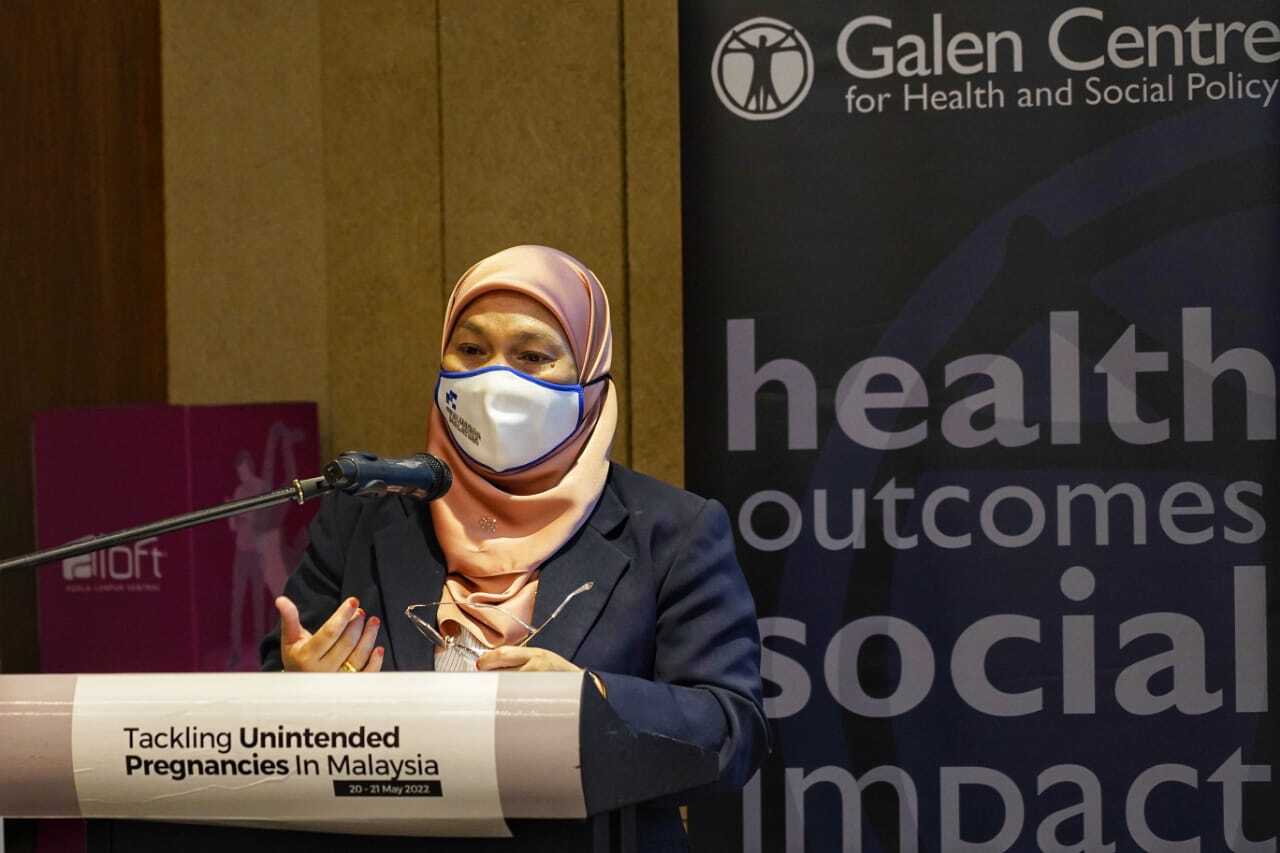KUALA LUMPUR, May 23 – The Women, Family and Community Development Ministry (KPWKM) has highlighted the importance of sexual and reproductive health services, including access to contraceptives.
KPKWM secretary-general Maziah Che Yusoff, who delivered a closing speech on behalf of Women, Family and Community Development Minister Rina Harun last Saturday at the Galen Centre’s conference on unintended pregnancies, reiterated the government’s commitment to increasing awareness about contraception and sexual and reproductive health.
“A clear understanding and comprehensive explanation about reproductive health services, like the provision of contraceptive tools, must be seen as an important element to increase the awareness of all layers of society about its importance in improving the wellbeing of all groups,” Maziah said at the conference organised by the Galen Centre for Health and Social Policy and supported by health care company Organon Malaysia here.
“Policies related to reproductive health rights in Malaysia take into account religious and cultural factors that shape individual behaviour and attitude in various issues, including unplanned pregnancy.
“In our efforts to handle this issue and to change public perception that reproductive health education is a controversial topic, KPWKM through LPPKN (National Population and Family Development Board) is always increasing knowledge on the necessity of social and reproductive health for the wellbeing and health of the individual, family and community.”
Maziah said LPPKN has conducted various intervention and prevention programmes related to sexual and reproductive health for teenagers, family, and community, citing the kafe@TEEN teenage centre.
The National Social and Reproductive Health Policy 2022-2025, or Pekerti, addresses social and reproductive health education across ministries, departments, agencies, and non-governmental organisations (NGOs) for all regardless of age.
“Social and reproductive health is the basis for the development of a healthy and well individual. It should be a lifelong learning process to ensure comprehensive knowledge across biology, sociocultural, psychological, and mental aspects for healthy life behaviours that can be absorbed and practised by all,” Maziah said.
She added that KPWKM is also focusing on tackling teenage pregnancy.
In her opening speech at the conference, Pengerang MP Azalina Othman Said described unintended pregnancies as a “silent ongoing crisis”, noting that 14 in every 1,000 girls below the age of 18 are pregnant, amounting to an estimated 18,000 annual pregnancies, of which 4,500 pregnancies are out of wedlock. An average of nine babies are reportedly abandoned every month.
A 2014 study by the National Population and Family Development Board (LPPKN) showed that Malaysia’s contraceptive prevalence rate (CPR) is only 52.2 per cent – this is just for married women.
Only 34.3 per cent use effective modern methods of contraception, such as birth control pills, barriers, injections, tubal ligation, and intrauterine devices or implants.












